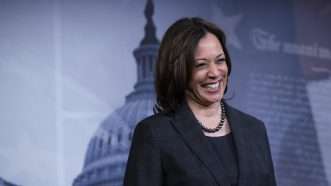Biden Ends Trump's Ban on Trans Troops
Reversing a bad policy launched by tweets

President Joe Biden signed an executive order today repealing former President Donald Trump's ban preventing transgender Americans from serving in the military.
The order brings an end to one of Trump's more unusual executive decisions, launched by a series of abrupt tweets in 2017 that left military leaders scrambling to comply. The order prompted lawsuits attempting to block implementation of the rule.
Under President Barack Obama, the military had begun allowing trans troops to serve openly. This created an environment where members of the military who were discovering they were trans could openly say so and transition without fear of being ejected. With the implementation of Trump's orders—which the Supreme Court allowed in 2019—all those troops suddenly faced ejection.
The full order is here. It reverses Trump's orders banning trans military members from serving, bars the military from discharging or refusing to reenlist servicemembers because of their gender identities, and essentially tells the military to adapt so trans troops can serve openly.
The Palm Center, a research institute known best for its analyses of public policy issues surrounding military service and LGBT citizens, put out a prepared statement by Director Aaron Belkin praising the move:
The ban will now be replaced with a single standard for everyone that, as in the successful previous policy, will apply equally to all service members. This is a major step in the defense not only of America but of American values. We look forward to a speedy implementation of inclusive policy.
Based on the Palm Center's research, the reversion to what the Obama administration started may happen quickly. According to a report the Center released last July (and updated later in 2020), the Department of Defense preserved enough of the work it had done adapting the military to support trans troops that it's not going to have to restart the process from scratch:
There will be no need to redevelop guidance, restudy options, redraft regulatory language, or retrain anybody. Everything needed already exists in current military guidance and remains a part of current military practice. The path to restoring inclusive policy is based on erasing separate tracks of grandfathered and non-grandfathered transgender personnel and returning to a single military standard that everyone, transgender or otherwise, is expected to meet. Consistent with decades of military research findings, the optimal framework will be to apply one standard to all, nothing more, nothing less.
The Palm Center believes the return to the previous trans-inclusive military policy could take place within 30 days.
This is great news for liberty. Being trans doesn't, on its own, mean an individual is unsuited for military service. There may be some individual trans people whose specific struggles mean that they aren't ready for military work. But they should be evaluated as individuals, not categorically rejected. As former Rep. Justin Amash (L–Mich.) noted on Twitter: "This is a win for equality before the law. Transgender persons should not be prohibited from serving in the Armed Forces on the sole basis of being transgender."





